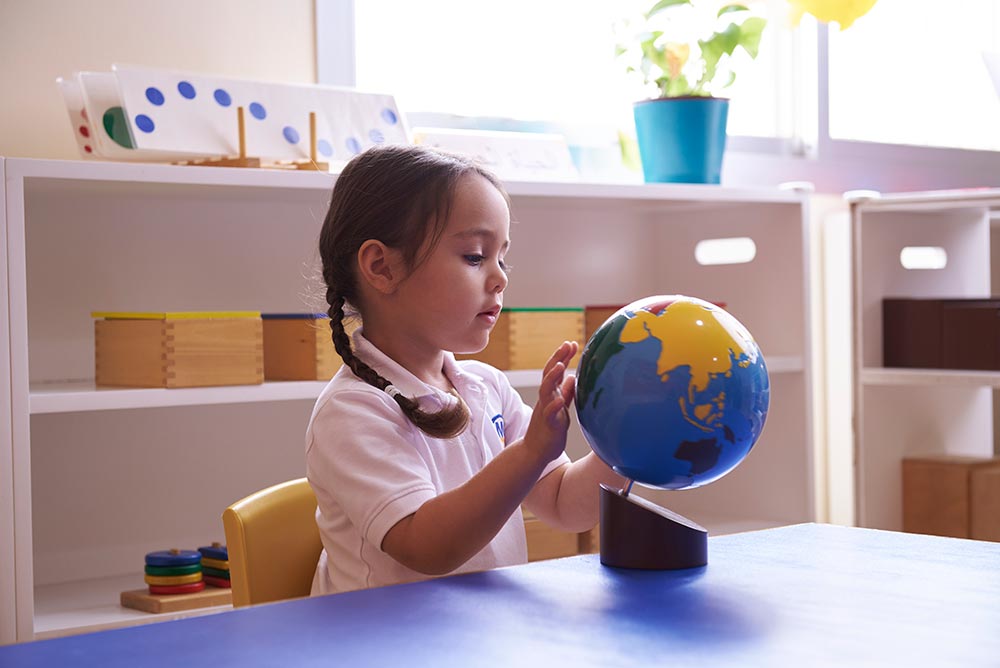Areas of Learning
Activities of everyday life
They also teach the child to see a beginning and end of an activity which enables success of completion of a task.
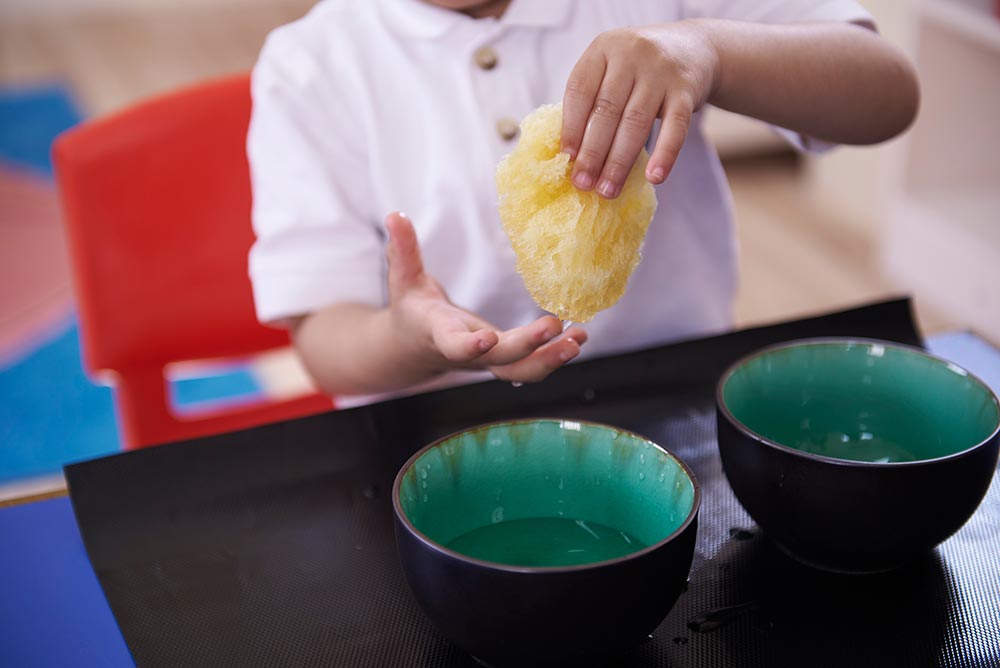
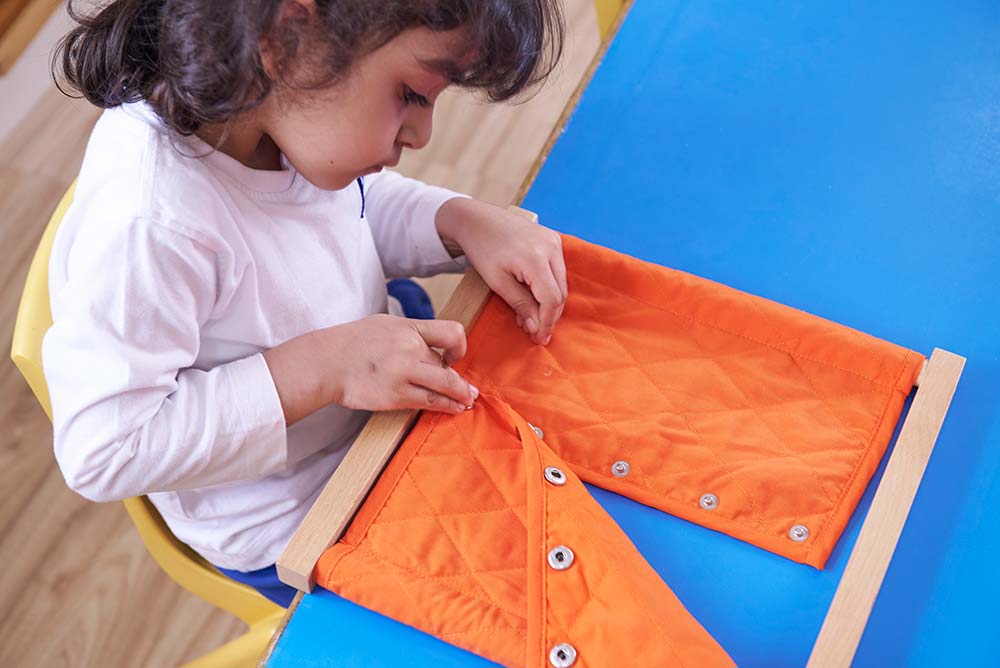
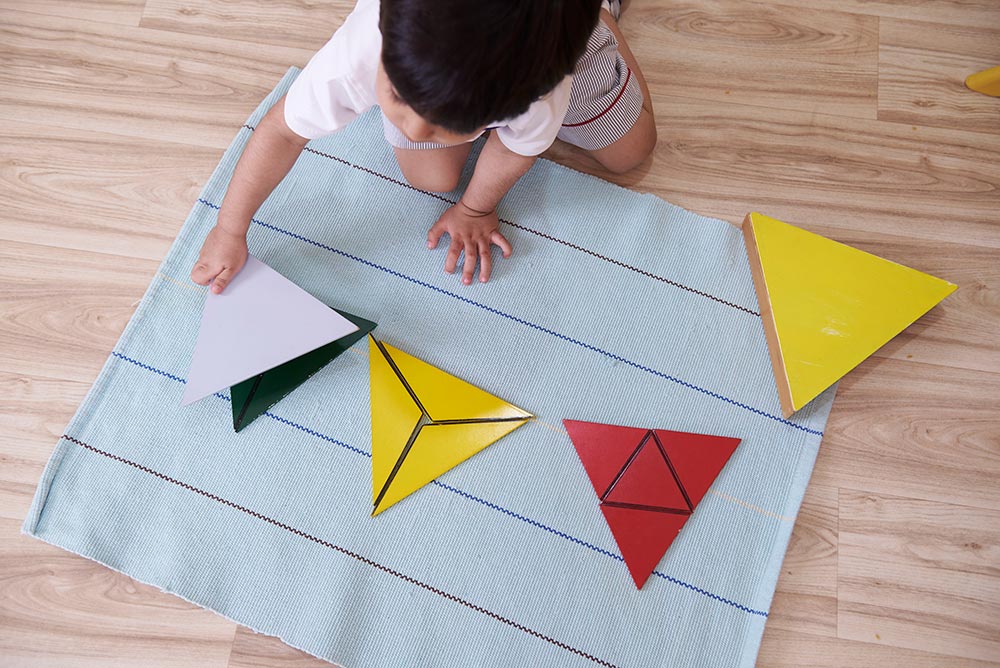
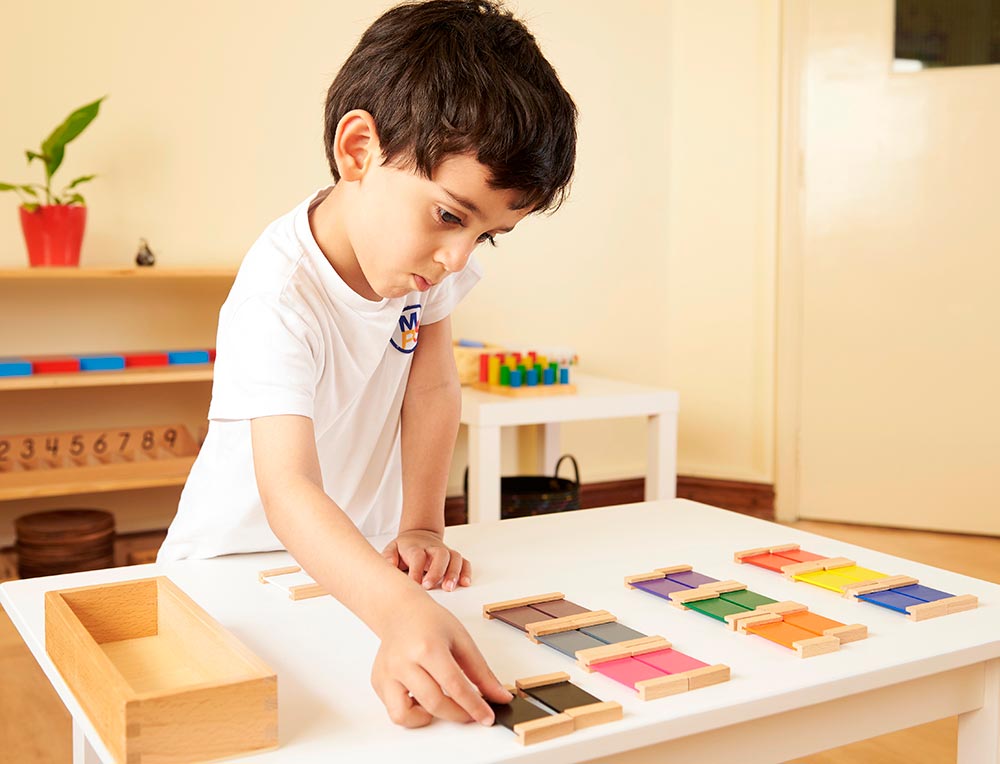
Sensorial area
The sensorial materials are designed to enable the child to gain a concrete understanding of sequencing, ordering and grading, in order for these concepts to become rooted for life in the child’s mind and aid the development of the mathematical mind.
Language and literacy
The child is first introduced to the phonics by providing materials with letters and objects in order to understand the initial sound recognition. Children work independently to place objects according to the letter of the initial sound. Later the children are introduced to sight words and three letter phonic words.
The Arabic and English language is continually reinforced through conversation, and stories, songs and rhymes.
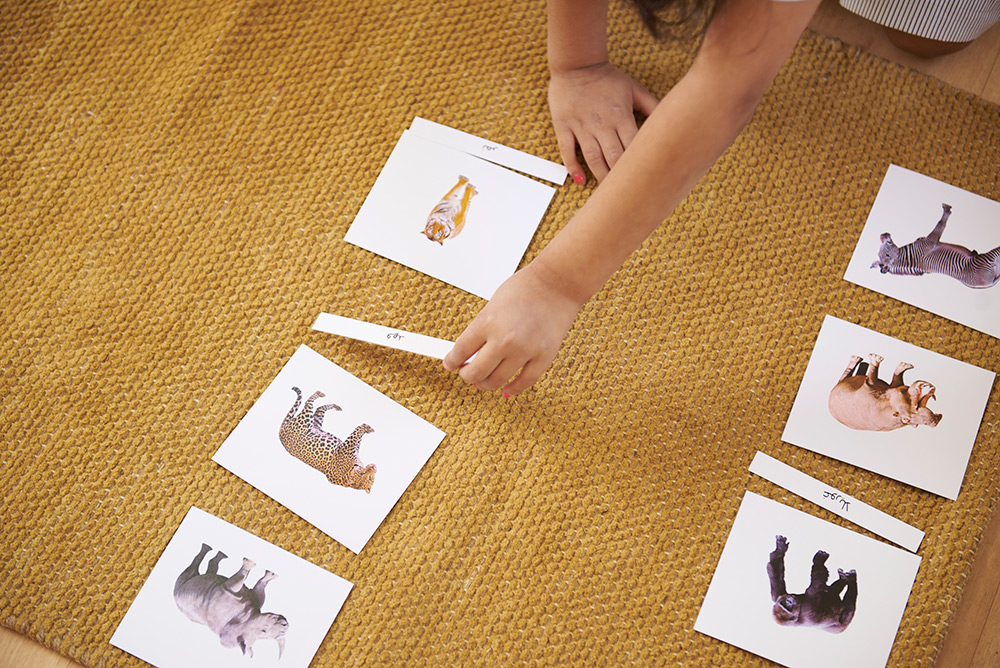

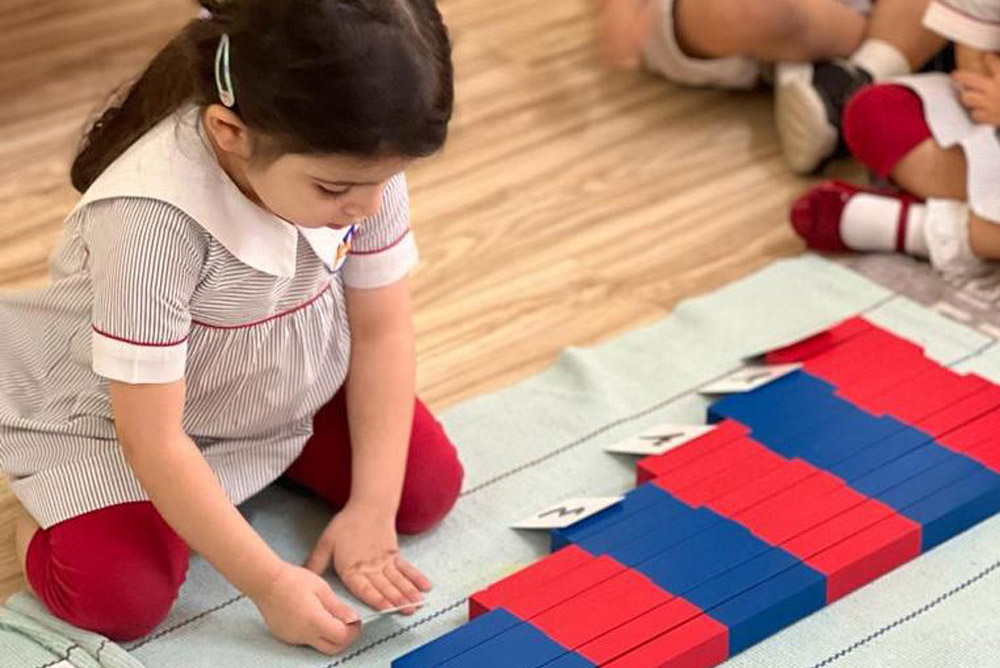
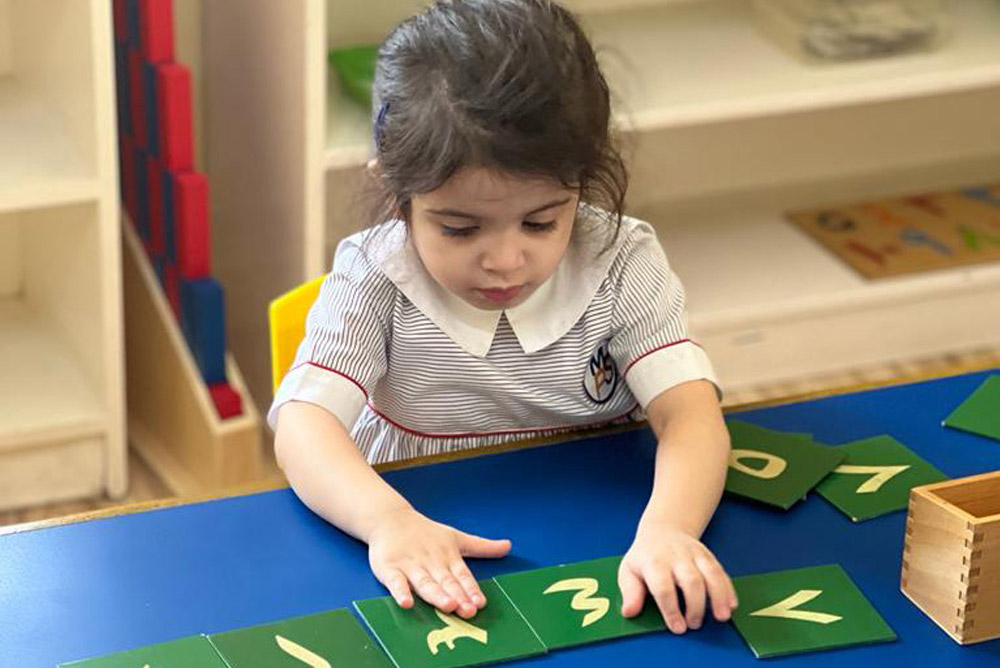
Mathematics
Maria Montessori believed that children have an innate mathematical mind.
Our mathematics program is essentially to prepare children for solid understanding of concepts such as addition, subtraction, division, multiplication and geometry. These are difficult concepts that provide the basis for future mathematical understanding.
Cultural Area
The cultural materials teach children about the world we live in. The plants, animals and the interdependence of the sun on all living organisms in our world. The children learn about human and animal life cycles and classification of the animal kingdom.
We introduce the children to the continents and discuss the differences in life on each continent.
Our objectives are to nurture in the child a deep respect and love for their world.
